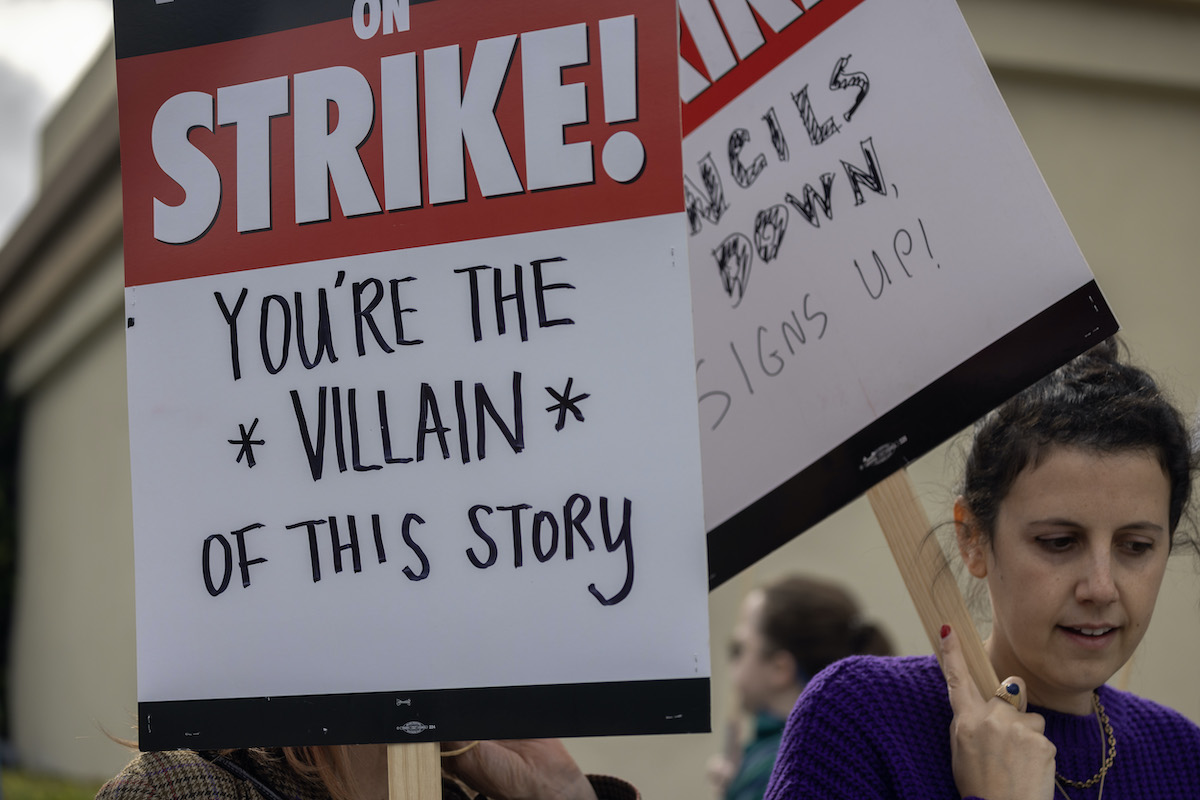AMPTP Hires a Crisis Management PR Firm While WGA Shows Up With the Facts

Last week, the Writers Guild of America, which has been on strike since May, released a negotiations update outlining some of the major counteroffers it received from the Alliance of Motion Pictures and Television Producers. The update also outlines why those offers fall short of what WGA members are demanding. AMPTP is ramping up a public relations push of its own—but it’ll have a hard time overcoming the PR blunders that studio execs have already made.
The counteroffer in WGA’s negotiations update that’s getting the most attention is this one:
The companies say they have made a major concession by offering to allow six WGA staff to study limited streaming viewership data for the next three years, so we can return in 2026 to ask once again for a viewership-based residual. In the meantime, no writer can be told by the WGA about how well their project is doing, much less receive a residual based on that data.
AMPTP’s strategy here is telling. If companies truly don’t have the money to pay writers the residuals that they’re asking for, why go to such great lengths to keep viewership numbers a secret? It’s hard not to come to the conclusion that AMPTP members are sitting on a lot of cash here.
Later in the letter, WGA gets into how much cash there is, calculating the percentage of each major company’s total revenues that would go to writers if AMPTP agreed to WGA’s demands. By WGA’s calculations, paying writers a reasonable wage would cost each company less than 1% of its annual revenue.
AMPTP, meanwhile, has hired crisis PR firm the Levinson Group, after spending months getting shredded by WGA and SAG-AFTRA members online (SAG has been on strike since July). Last month, Disney CEO Bob Iger spoke from a retreat for the ultra-wealthy in Sun Valley, ID, calling SAG members’ demands “unrealistic.” That statement gave SAG president Fran Drescher the perfect opportunity to point out that Iger makes $78,000 a day. That same month, AMPTP revealed that their goal was to drag the strike out until writers started “losing their houses,” prompting widespread backlash. The Levinson Group has their work cut out for them.
However, AMPTP is overlooking the most obvious solution to their PR problem: give their workers a fair share of the wealth that those workers created. If they dredge the tiniest bit of humanity from the folds of their brains, instead of cackling about how they’d rather force people onto the streets than give up a minuscule share of their riches, they could could come out of this smelling like roses.
Meanwhile, writer and director Zack Borstein puts it best, tweeting, “Struggling to figure out how 8 billionaires who want to replace workers with robots are losing the narrative to 10,000 professional storytellers and the 150,000 hottest people in the world.”
(featured image: David McNew, Getty Images)
Have a tip we should know? [email protected]
